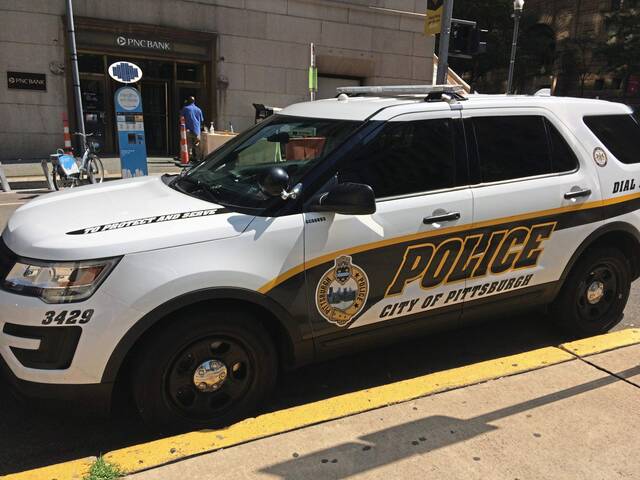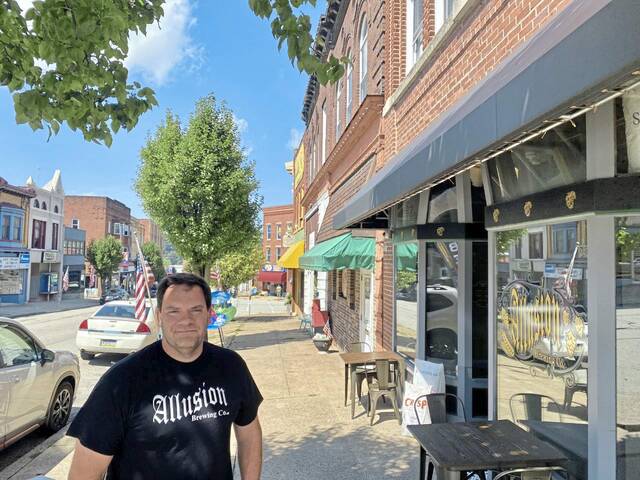Pittsburgh City Council is considering a proposed $45 million, 10-year contract for city police to buy and upgrade body and vehicle cameras, Tasers and related equipment and software.
The proposed contract would be with Scottsdale, Ariz.-based Axon Enterprise. Pittsburgh police now use Axon for their body-worn cameras and tasers, but get in-vehicle cameras from a different vendor.
Police Chief Larry Scirotto said having one vendor for all of the equipment will allow them to integrate devices so they can work in tandem.
The equipment is “absolutely essential for our officer safety (and) for our organizational accountability,” Scirotto said.
The upgraded equipment would include sensors that will activate body-worn cameras any time an officer takes a Taser or firearm out of its holster, Scirotto said.
Officers now must activate their body cameras manually, but there are times when officers are unable to do so because of user errors or because they don’t have time to activate their camera in a fast-paced, dangerous situation, Scirotto said.
The system also activates in-vehicle cameras automatically when the lights are turned on, he said.
The proposed Axon contract would provide software that stores the video and offers other services, including transcription, officials said. Video would upload automatically, an upgrade from the existing system that requires officers to manually upload videos from their devices, Scirotto said.
Under the proposed contract, cameras and Tasers would be replaced on a rolling basis every 36 months unless there are upgrades, at which point police would get the latest equipment when it’s available. In addition to the cameras, the contract would provide Tasers and additional cartridges for them as needed. The in-vehicle cameras would be replaced immediately to switch out the equipment from the current vendor.
“We get the newest version of their system every time they make an upgrade,” said Jake Pawlak, director of the Office of Management and Budget.
The proposed contract would cover 950 officers. The bureau now has 800, but Scirotto projects it will have about 870 within a year.
The proposed contract also would cover 165 vehicles, Pawlak said, though the city now has fewer than that.
Scirotto said the bureau would only pay for what its uses, meaning it would pay less than $45 million if the bureau doesn’t reach the 950-officer or 165-vehicle threshold.
Also included in the proposed contract are virtual reality headsets that allow police to undergo simulated training scenarios and software that would allow police to survey people about their interactions with officers after 911 calls.
Council members acknowledged the need for the equipment, but voiced concerns about the cost and duration of the proposed contract.
Councilwoman Deb Gross, D-Highland Park, said she was concerned about relying on one vendor for so many services, and said she worried that the vendor could raise its prices after the proposed contract ends after the city has become reliant on them.
“It is a hefty price tag,” she said.
Councilwoman Barb Warwick, D-Greenfield, and Council President Theresa Kail-Smith, D-West End, questioned whether the proposed contract could have been negotiated for better prices.
“It’s just an awful lot of money,” Warwick said.
Councilwoman Erika Strassburger, D-Squirrel Hill, said she would’ve preferred a shorter contract.
Pawlak said the company offered a better deal for a longer contract, and the city is saving $10 million by going with the 10-year deal over a five-year contract.
Despite concerns over the price tag and contract length, council members said they understood the need to provide equipment that officials said provides accountability, transparency and safety for officers and the public.
“I want to give you the tools to do the job we ask you to do every single day,” Kail-Smith told the police chief.
Council approved the proposed contract in a preliminary vote Wednesday. It could appear on next week’s agenda for a final vote.








